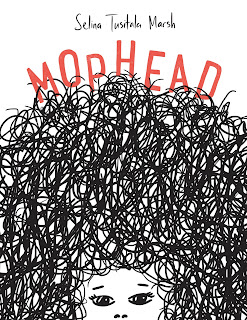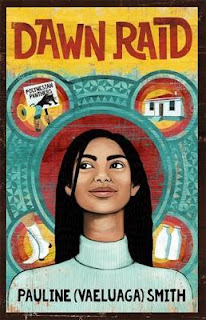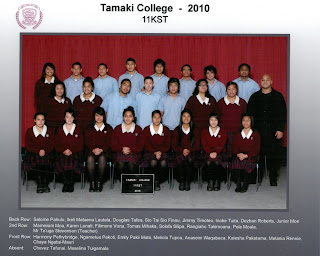September 13 2021: 2:59pm - "How long will this go on for?" This is a question that is probably at the forefront of everyone's mind in Auckland. I know that this is not going to go on forever, but it sure does feel like it. We are entering our 4th week of lockdown with cases slowly rising again after the declining number of cases that we experienced early last week. I am not going to dedicate this post to talking about numbers and data for COVID but I am going to explore the fatigue that many of us are experiencing right now. The nature of lockdown means to literally lock yourself at home, all contact with family, friends, church, work - is now online and there is to be no socializing with our circles. It is a strictly confined lifestyle where home, the supermarket and (if you are inclined) exercise, is the space that we are to co-exist in. Going into the 4th week of lockdown, the novelty has worn off, the days have all melted into each other, the routine and dynamic of our working lifestyle has become part of our home life. Fatigue. Not fatigue from working, being with family or at home binge watching every season of Modern Family (yes I love this show) but the fatigue from living a life that has been minimized by a virus is mentally exhausting. I miss the freedom of pre lockdown. Having the choice to be at home or not, the choice to see family or (in some cases) avoid them. But to have this choice chained until everything is in the clear, is draining.
So to avoid from ranting on and on about my distaste for lockdown right now I am going to explore on what I have done (today) to shift my focus. I have had to do this as there is nothing I can do to change any of this. I have emailed a select group of students about their assessments and I have asked them work on certain parts - almost like a daily challenge to complete different tasks on a particular assessment. This is good for the students, they are able to work on a task basis ticking off all the boxes in a day rather than having the weighted expectation of churning out work as if they were in class. I understand that the work rate at home is totally different to when we are on site, so I am wanting to re-shift the focus on doing the best you can whilst being at home. The expectation that teachers with students during lockdown can, at times, be unrealistic. We assume that because the students are working from home, that they have the luxury, time and space to really focus and get assessments done. But for many students, for many of my students, this is not the reality. Home is not necessarily the 'sanctuary' that we assume it to be, as some of my students have the responsibility of taking care of siblings, grandparents, parents while they are home. Some have to work as essential workers and cannot commit to online learning. Some do not have the space to commit to online learning as they have to share space with the rest of their families. They cannot 'leave a comment' or turn their camera because they with everyone else. So think shifting the focus from what I expect of them to giving them a variety of tasks to do and leaving window open in terms of the deadline. This will help both - myself and my students - mentally get through another week of lockdown.
September 14 2021: 4:48pm - "Mā te ako ka marama, Mā te marama ka mātou, Mā te matau ka ora" (Through learning comes understanding, Through understanding comes knowledge and wisdom, Through knowledge and wisdom comes life and well-being). Ms George shared this proverb at our online staff meeting on Monday September 13, a beautiful proverb indeed. I have taken some time today (in amongst all the Google meets) to reflect on what this means to me. This proverb highlights the importance of learning - of being a learner, in any context - whether you are in the classroom learning at school, training to upskill one's technique for sport, rehearsing and learning content for a stage show - in any context the importance that learning has in our lives is huge. The more we are eager and hungry to learn and to be a life-long learner, this will have a positive influence in our well-being which will then impact how we live. The older I have become, the more I want to learn - to re-learn and re-gain the aganu'u Samoa, to learn the language and customs of my culture, to learn how to be a better husband, son, brother, uncle, cousin and friend. To learn how to be a better teacher and leader at work. I want to learn to improve and to be the best version of myself for myself. This is a proverb has resonated well with me and I hope to use this with my students. I think about how the students have engaged with the language weeks over the last two weeks (Tongan + Te Wiki o Te Reo Maori Language Week) and how there has been so much connecting and learning in the process. Unfortunately this does align with our curriculum, in way that will take our learners to the level of education and employment that they (we) desire. However I can see that there is a depth of matauranga that is rich in culture, language and identity. Even if you are not Tongan or Maori (I am speaking for myself) learning about other cultures has only made me want to learning and understand (Mā te ako ka marama) more about my own heritage, my own whakapapa. I hope to use this proverb, this gem, as a way to connect with my students online (all 5 of them) to uplift them and to hopefully draw them in with online learning.
September 15 2021: 4:16pm - Today was a relatively quiet day. I had no online classes today, I just had meetings with my House mentors and student leadership team. I have spent most of the day getting the media content ready for our House for the Te Wiki o Te Reo Maori Language House competitions. I have taken it upon myself to create the media content, an area that I have absolutely no experience in but one that I am enjoying and learning a lot along the way. I am currently putting together a video montage of my House saying our school pepeha. I have been collecting everyone's videos and then I will edit those then collate them into a montage. Working with the students and teachers over the last two weeks with the Language week competitions have been fun, it has been a nice distraction from the quietness of online learning. Mā te ako ka marama (through learning comes understanding) - I have learnt a lot through this process of editing, compiling and producing a media. I have learnt that if I put my mind to something and I am patient with the process, whatever it may be, it will work out. I understand that my role as a House Dean does not necessarily mean I have to do and be in the front all of the time, I can still lead and have an impact whilst pushing others to the front and helping them grow and perform to their best. I quite enjoy this part!
September 16 2021: 12:31pm - A whakatauki is a proverb or saying, that encourages whoever that is receiving it to think beyond their own understanding. "He aha te mea nui o tatou? He tāngata, he tāngata, he tāngata" this whakatauki poses a question "What is the most important thing in world?" "It is the people, it is the people, it is the people." Over the last few days I have worked with my mentors and students through different tasks for Te Wiki o Te Reo Maori. I have seen that having great ideas, motivation and ambition is an important of any organization. I understand and believe that those ideas, the vision and the execution is not possible without the people. I truly appreciate the people that I am blessed to work with - the mentorship team, the student leadership team - the hands and feet of my whanau group. I have spent this week learning the reo, creating our own pepeha, learning our school pepeha, learning karakia, learning Maori rhymes and understanding a culture that like my own, is deeply rooted in it's tikanga, aganu'u, traditions and values. It has been a privilege to delve into a language and learning that origin of language and more importantly how to pronounce the reo. This all ties into identity and we are all, in our way, on a identity journey. We are constantly trying to figure out who we are, what we want, what we do not want, what we desire, what will help us, what we need, who we need, where are we from - all of this and more, is a part of the journey to our own 'becoming'.
September 17 2021: 1:48pm -
Kia Kaha Te Reo Maori (Let's make the Maori language strong). This is theme for Te Wiki o Te Reo Maori Language Week 2021. As a Samoan, I totally understand the importance and see the importance in the preservation and nurturing of language. Te Reo Maori is one of the official languages of Aotearoa, it is taonga for our country and one (I believe) that needs to be respected and valued by all who live in Aotearoa. I have learnt that
Kia Kaha Te Reo Maori is not just about Maori but it is about everyone - we are all encouraged to keep the reo strong - it does not matter how much or little we know, we keep saying it and practicing it. In doing this, it helps to strengthen the reo. Today at our House assembly we heard from some of our Maori students in Totara about their take on the theme and what it means to them. This was supported through a closing word from Co-HOD English, HOD Te Reo Maori, Executive Dean and member of SLT - Ms Amber George - who spoke life to our students and in particular the Maori students in Totara, about the strength in knowing and valuing who they are as Maori. Here are some highlights from what was shared for our House reflection.
"
Kia Kaha Te Reo Maori to me means expressing the language in ways you feel comfortable with and keeping the language strong for the future generations. I think it is important that young people appreciate and respect their culture and their languages because culture plays a big role in many young people's lives and because its our identity, who we are, who we represent and the things and people we carry with us."
"It hurts to know that I let people's opinions override me for doing the things that I love, like Te Reo Maori and Kapa Haka. It annoys me that I feel like I suffocated my culture to fit in and to be more acceptable to please others. I found this whakatauki and it has encouraged me - Kaua he whakamā ki te korerō Māori, Ahakoa he iti, he tāonga. Don’t be shy to speak Māori, No matter how little, Treasure it."
"By embracing other people's cultures, not mocking them and putting them down, you are giving yourself more meaning to your own. To our te iwi Maori don't be shy of being who you are. You were not born and put into this world to be average. You were born to stand out and behind comes all of your Tupuna who went before you. You are never alone, behind you is your Tupuna who guide you."
My takeaway from this week is this whakatauki. This whakatauki resonates with me, I believe that it is the people who are at the heart of the matter on when it comes to education. Without the people, we cannot pass on knowledge or learn from others. He aha te mea nui o tatou? He tangata, he tangata, he tangata. (What is the most important thing in this world? The people, the people, the people).
 |
| Whakatauki |



































